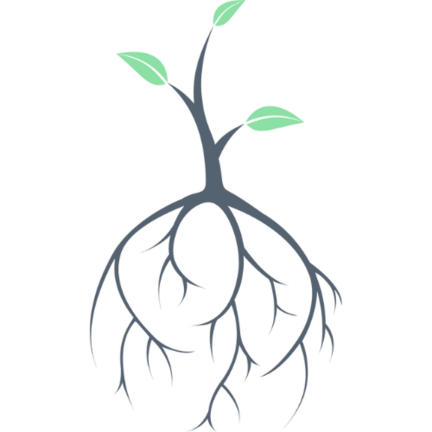
Neufeld Intensive III: Becoming Attached
Sessions: 15
Lecture: 18h 53m
Certificate: 30+ hrs
750 CAD
The third in the series of Neufeld Intensives, this course unfolds and expands each of the six roots of attachment with a special focus on adult dynamics. Dr. Neufeld also shares the key puzzle pieces that ultimately came together to form his six-root model of attachment. The Intensive III is designed not only to provide deeper theoretical understanding but also to give the opportunity for more personal integration of the material.
- The prerequisites for Neufeld Intensive III are Neufeld Intensive I: Making Sense of Kids and Neufeld Intensive II: The Separation Complex which can be taken anytime on your own, or as a scheduled class (when available).
As is the case with all our courses, this course features lectures by Dr. Neufeld, carefully curated support for enriched study, study aides, the opportunity to ask questions of trained faculty or course facilitators, a year's access to the campus to enable study at one's own pace, and a certificate of attendance upon completion. For more information, consult the "about our courses" page.
COURSE SUMMARY
Attachment is absolutely fundamental to who we are and what we do. It follows then that understanding the dynamic of attachment would provide the keys to self-understanding. It also follows that our self-understanding is only going to be as good as the model of attachment we are using. Dr. Neufeld’s six-stage theory of attachment provides a comprehensive model that is universal in its application. Each way of attaching is explored to reveal a treasure trove of insights with the power to explain perplexing phenomena as well as our own inner experience. Each way of attaching is also embedded in the psychological literature that points to it. The last way of attaching — via "self-disclosure" — is also explored as the catalyst for growth through the lifespan.
Each of the six ways of attaching is unpacked to understand what the various dynamics look like through that lens: alpha instincts, shyness, alarm, depersonalization, wounding, and defensive detachment. We also explore the purpose of each form of proximity, the relationship with other forms of connection, and the temptations involved in each way of pursuing closeness. Issues of exclusiveness in, and the sexualization of, each mode of attachment are examined. Besides making sense of ourselves and our children, this material can be used to make sense of any attachment relationship, including marriage, friendship, and the relationship to one’s God.
This course is part of our foundational studies, which serves as the portal to our advanced support subscription.
SUITABILITY/APPLICABILITY
This course is universal in its application. There is not a profession or venue of application that is not informed by an understanding of attachment. People from all occupations, cultures, and religions have been equally engaged by the material in this course. The best way to take the course is to come for oneself. This course is also highly recommended for therapists.
SAMPLE TOPICS
- how our first sense of identity forms via the quest for sameness
- how self-esteem derives from the quest for significance
- how the quest for significance results in irresistible temptation
- how the attachment conscience is formed
- the role of self-disclosure in attachment and personal growth
- the impediments to true intimacy
- the dangers of self-disclosure when out of a relational context
- guilt and attachment
- growing up across the lifespan
- how depression can result from attachment
- the nature of rest and security in attachment
- what wounds and alarms in each way of attaching
- what the sexualization of each way of attaching looks like
- what phenomena each modality of attachment explains
- where the topics exist in the psychological literature
- what the alpha and dependent stances look like in each way of attaching
- recognizing these attachment dynamics in marriage and religion
COURSE OUTLINE
The course is structured into 15 sessions, with each session including approximately one hour of instructional video from Dr. Neufeld.
- Session 1 — Overview of the Intensive
- Session 2 — Attaching via the Senses
- Session 3 — Attaching via Sameness
- Session 4 — Attaching via Identification
- Session 5 — Attaching via Belonging & Loyalty
- Session 6 — Attaching via Significance
- Session 7 — Influencing the Verdict
- Session 8 — Significance and Self Esteem
- Session 9 — Conscience and Attachment
- Session 10 — Attaching via the Heart
- Session 11 — Attaching via Self-Disclosure
- Session 12 — Impediments of Intimacy in Adulthood
- Session 13 — Growth via Self-Disclosure
- Session 14 — Attachment and Depression
- Session 15 — Finding Release
Inquiries
If you have questions or require additional information that you cannot find on our website or FAQ page, you may contact our office on our Inquiries page.
Charity & Non-Profit Status
The Neufeld Institute is a registered Canadian charitable organization under the name Neufeld Institute Foundation and is also registered as a NPO in British Columbia. If you would like to make a contribution to us, please go to our donation page.
Stay Connected with the Neufeld Institute
Sign up for our newsletter to receive insights, editorials, and updates on new courses, webinars, and scheduled classes — all rooted in the Neufeld approach. Whether you're a parent, educator, or professional, our resources are here to help you make sense of the children in your care.
